How will Syrian refugees fare on a Scottish island?
- Published
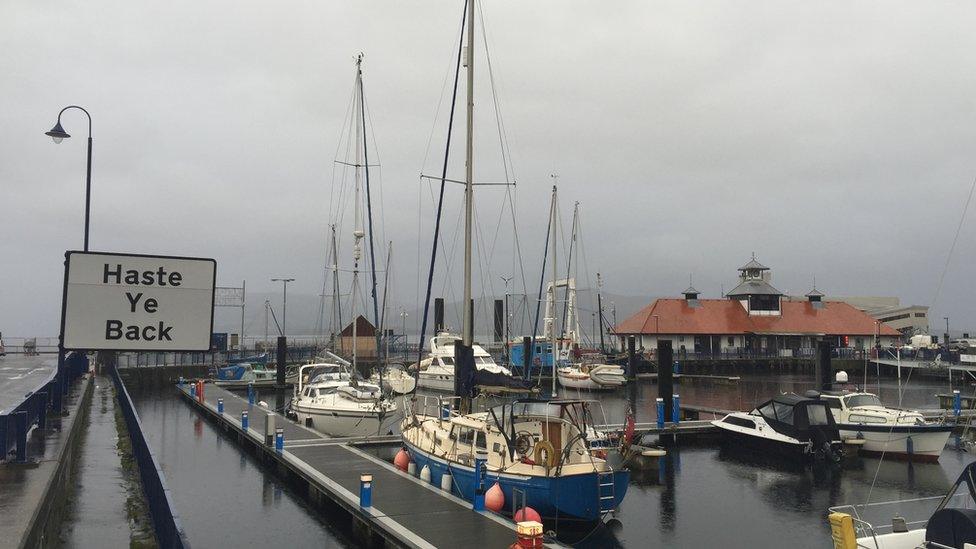
Rothesay harbour
One is often arid and sweltering; the other can be bitterly cold and wet. Syria and Scotland are separated by more than the 3,000-odd miles that lie between them - but 15 Syrian families will soon be arriving to set up home on the island of Bute.
How has the local community reacted, and what will those making the journey from the refugee camps in the Middle East be faced with when they arrive?
Many on the island, accessible only by ferry, have welcomed the news and have set about doing all they can to make the new additions feel welcomed to the 6,500-strong population.
Projects have been set up to help the new neighbours settle into all different aspects of life.
Locals have lined up a range of services, encompassing everything from help with food shopping to a language service.
School pupils are making a welcome video for their new classmates, and a local church has offered up a hall the newcomers can use for whatever purpose they like - there has been some suggestion that it could be used as a pop-up mosque, with an imam being brought in from the mainland.
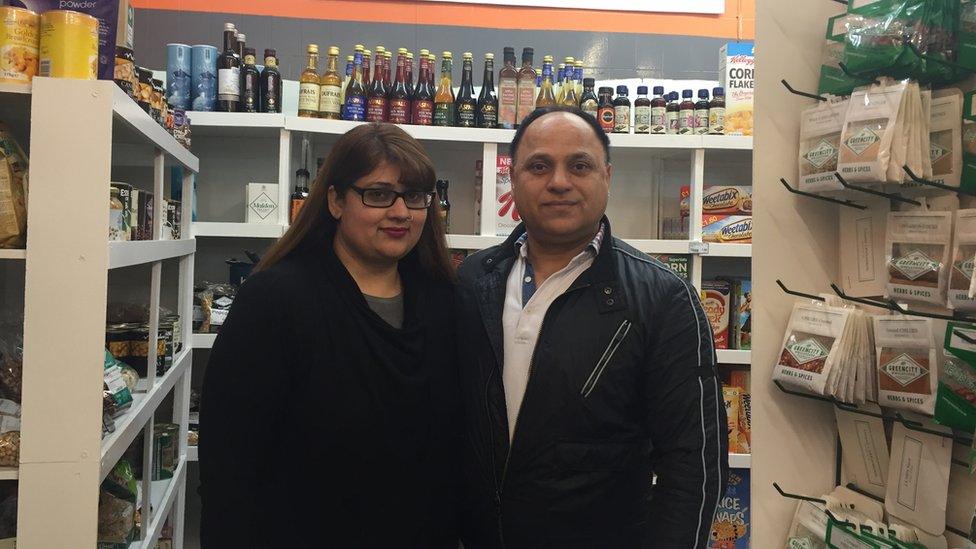
Shopkeeper Baljit Singh Virdi and his wife Nancy have promised to order special foods for their new Syrian neighbours
The Londis convenience store in Rothesay, the main town on Bute, has even started stocking a wider range of world foods than could be expected of most convenience stores - and vowed to order any foods its new customers require to make them feel at home.
Baljit Singh Virdi and his wife own the shop on Montague Street.
Mr Virdi said that they had expanded the "world foods" section to include ingredients, such as spices and pulses, that are often used in Syrian cooking.
He said the section already includes Polish, Chinese and Indian ingredients to meet the needs of other, albeit small, communities on the island.
Feel at home
"We should be able to get them in whatever they require, no problem at all," he said.
The Virdi family came to Bute on holiday and loved it so much they decided to stay.
Mr Virdi said his children, now aged six and seven, were very happy there.
"They think Bute is the best place to live, and so do we. They have experienced no racism at all here.
"I'm so glad the refugees from Syria are coming here. We are looking forward to welcoming them and making them feel at home", he said.
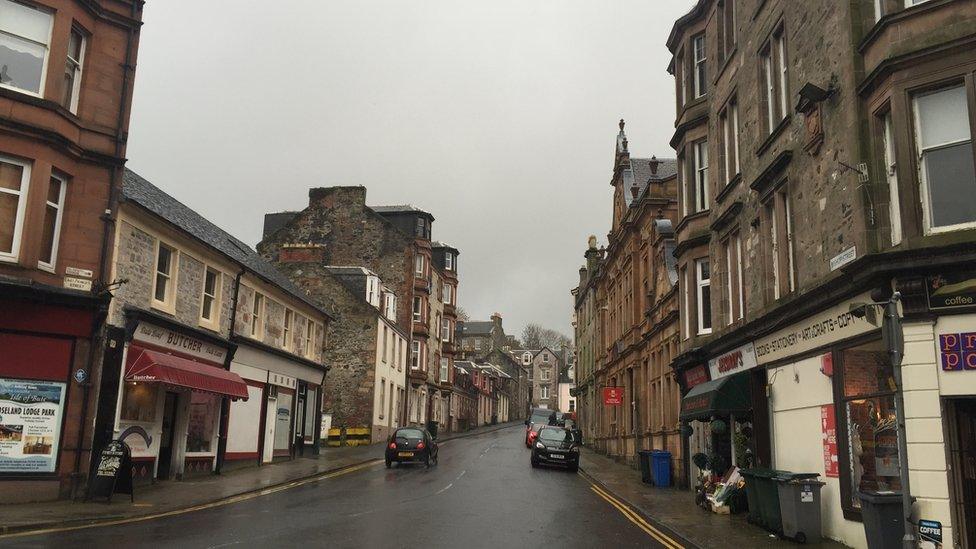
Locals have set up a "skills bank", where people can offer up anything they think they can contribute.
So far, the bank has registered everything from the island's one Arabic speaker - a school teacher who commutes from the mainland - to shopping mentors who can accompany the families to the supermarket to help them with grocery shopping.
And it is not just the diet that might be a change for the new arrivals - the climate might also take some adjusting to...
When the refugees - expected to number about 80 - arrive in Rothesay, they are likely to be faced with temperatures of about 5C (41F), rather than 17C (63F) of Damascus, Syria.
The island is one of Scotland's most accessible - a 30 minute drive from Glasgow to Gourock ferry terminal, then an hour on a ferry.
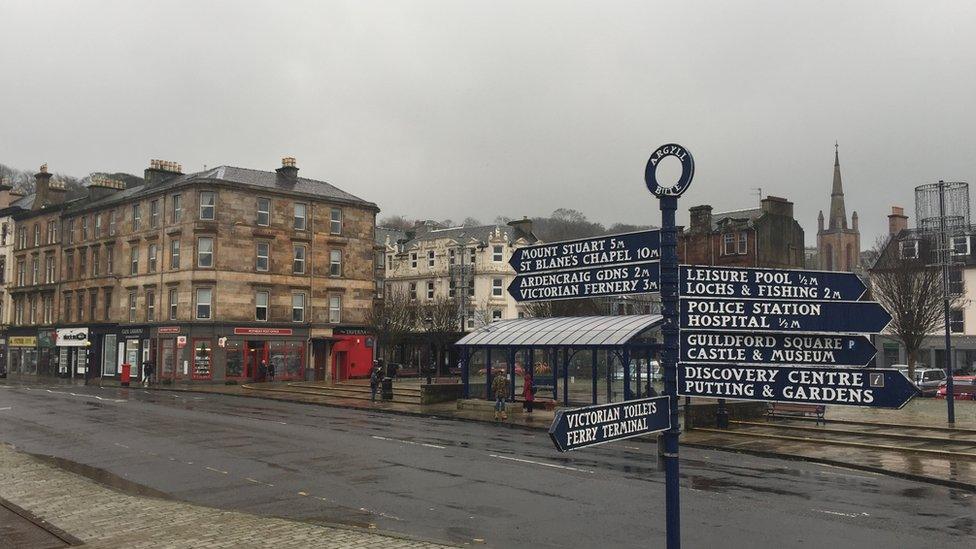
Things are expected to be particularly quiet on the island this Christmas due forecasts of bad weather, but that has not dampened the community spirit of those who want to help.
One of the island's priests has even been into the local newspaper office to enquire about placing a welcome message in the paper - written in English and Arabic - for the refugees' arrival, according to the editor.
But while many islanders are busily preparing to welcome their new neighbours, some are anxious. They voiced worries about resources, which are already tight, being stretched further.
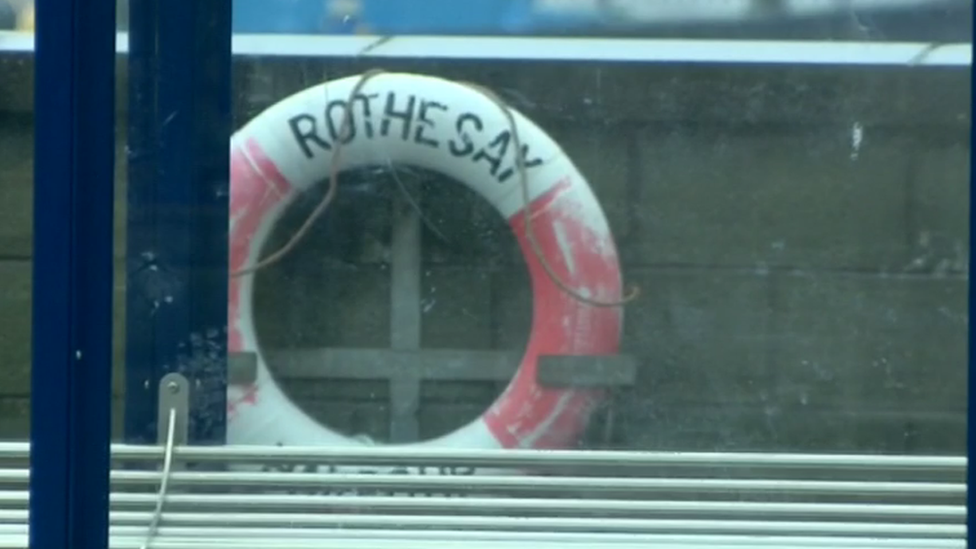
Mark Lingard has voiced his opposition to the plans, branding it a "social experiment".
He is concerned that residents had not been consulted, and that it might have a detrimental impact on the island's economy.
Mr Lingard said he was also unhappy that whenever he voiced an opinion he was accused of being racist.
'Really nervous'
"We have a real chance on Bute to build an inclusive society, but we need to stop making concessions all the time to people that come to stay with us from other countries. Live among us, live as one of us and people won't have an issue with it.
"As soon as we start to bend the knee we are making a rod for our own backs. I've seen this throughout the UK. I've got family that live in Keighley, north of Bradford, and they're in a minority.
"I've already been branded a bigot in the local press for speaking like I'm speaking now, and as far as I'm aware I've not said anything that's bigoted or racist. A lot of people you'll find here are really nervous about speaking up about this issue because they're scared of being branded a bigot or a racist."
One local woman, who gave her name only as Margaret, said she wished the refugees "all the best" - but added that she felt charity should begin at home.
"I saw the church was doing an appeal for bikes to give to the Syrian kids at Christmas, but there are parents here already who have to choose between heating their homes and feeding their kids, let alone buy their own children bikes," she said.
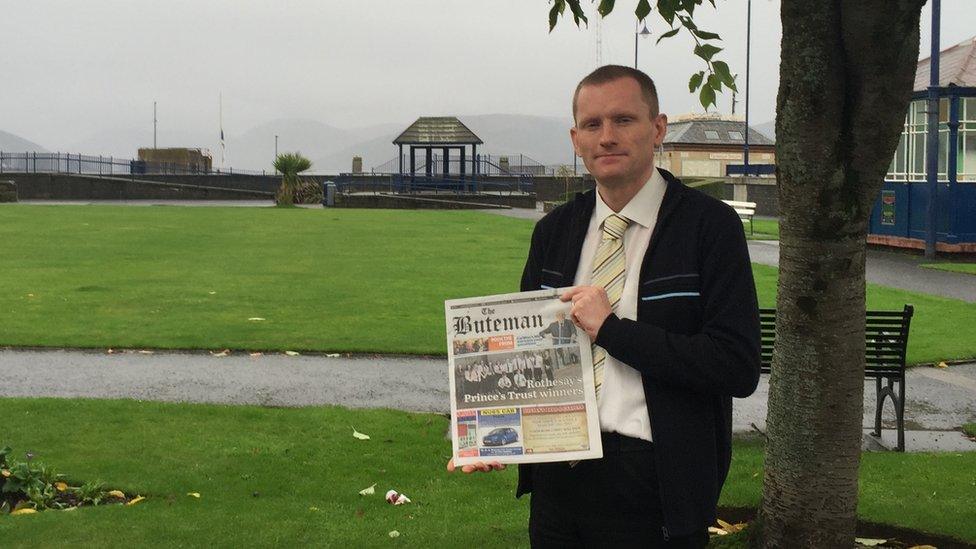
Craig Borland, editor of local paper The Buteman
But the editor of the local paper, The Buteman, responded to those who were unhappy with the decision to re-settle refugees on Bute.
In an editorial for the paper, external, Craig Borland wrote: "There have, predictably but depressingly, been grumbles about how we should look after our own first, how we should be spending our taxes and so on. But mostly these are just not-very-thinly-veiled ways of people saying 'I don't want them in my back yard'.
"Well, I do. I want Bute to be a place where people who come here with little more than the clothes they are standing in can feel safe and at home.
"I want Bute to be a place known not for narrow-minded bigotry, but for its warmth, and humanity, and willingness to help people with nothing in whatever way it can."
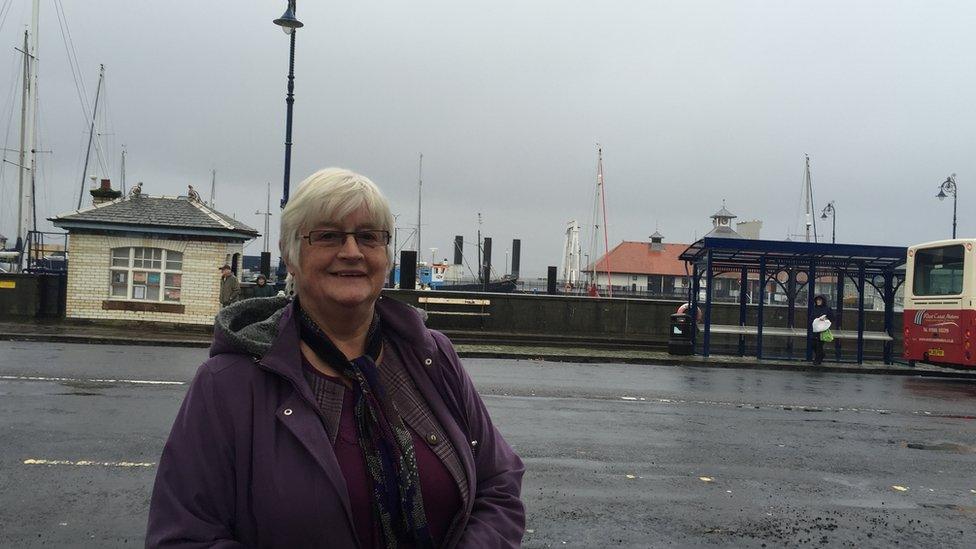
Councillor Isobel Strong said the refugees could depend on a warm welcome
Councillor Isobel Strong, of Argyll and Bute Council, acknowledged that not everyone was happy to accommodate the refugees.
She said: "I know not everyone is as welcoming as I am, but I know there are people here they will be able to rely on.
"It's cold and wet here, but we'll see to it that they get a warm welcome."